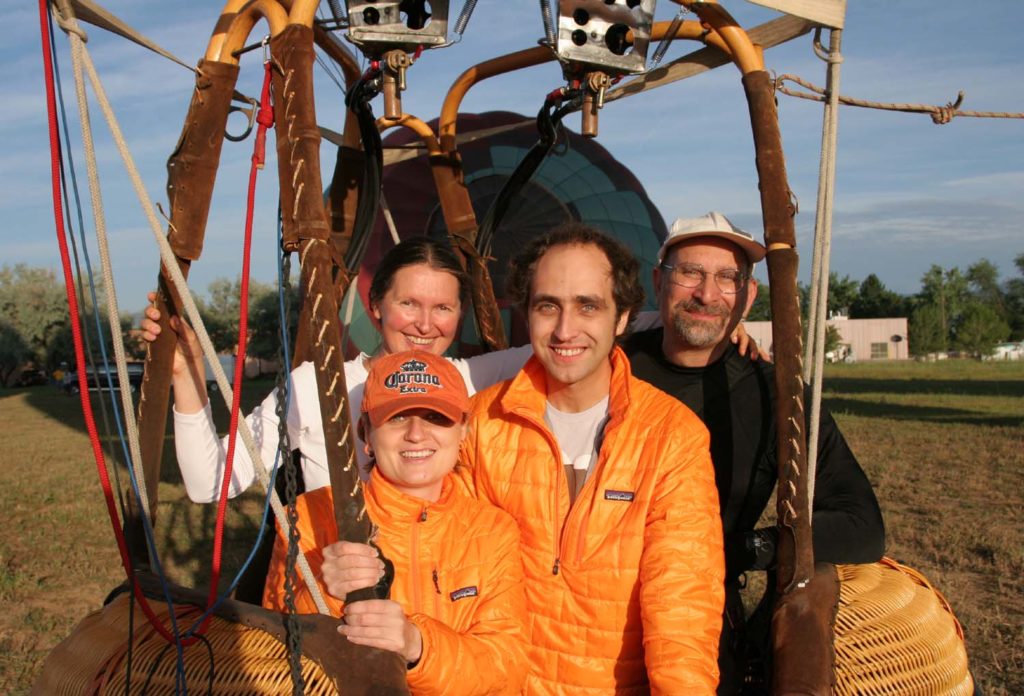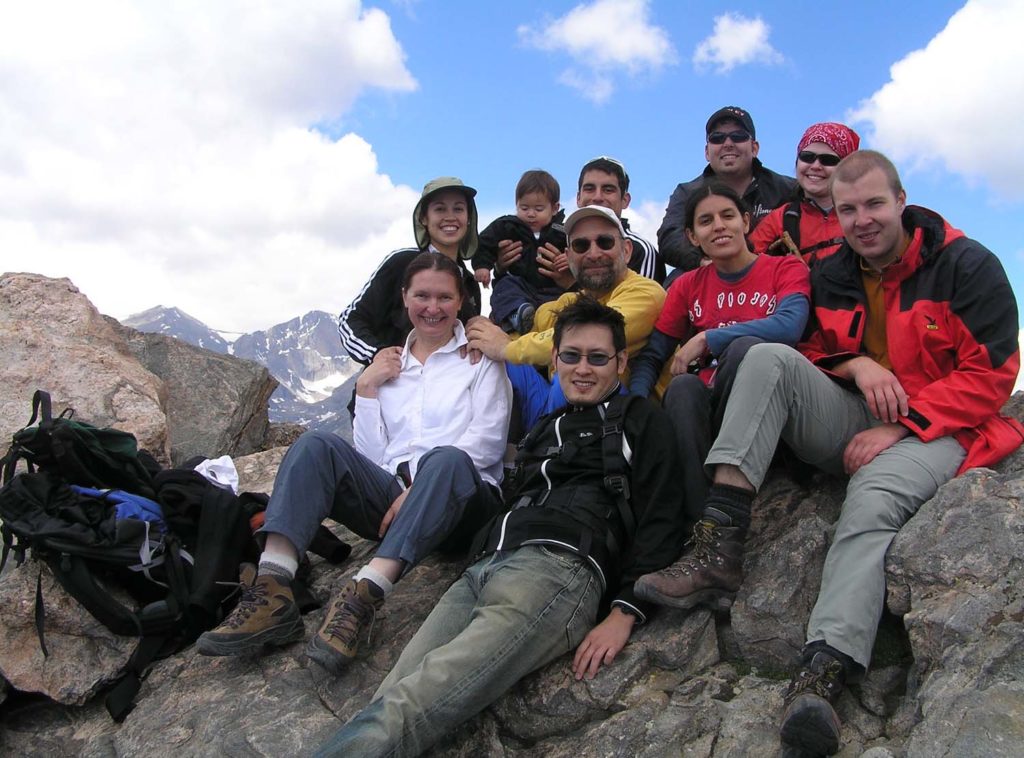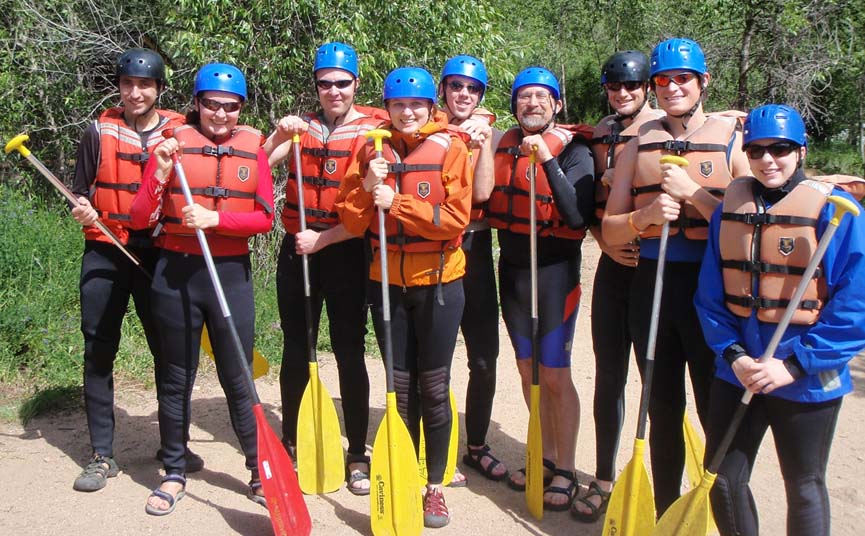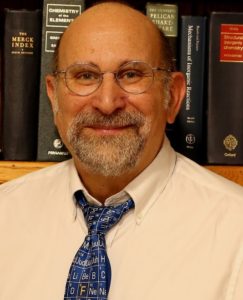 Steve Strauss, professor in the Department of Chemistry, is retiring from Colorado State University after 39 years. On Dec. 31, his title changes from “Professor of Chemistry” to “Professor Emeritus of Chemistry” at Colorado State University.
Steve Strauss, professor in the Department of Chemistry, is retiring from Colorado State University after 39 years. On Dec. 31, his title changes from “Professor of Chemistry” to “Professor Emeritus of Chemistry” at Colorado State University.
Strauss received a Bachelor of Arts in chemistry from Franklin & Marshall College in 1973. From 1973 to 1974, he was part of the U.S. Peace Corps in Africa’s Bukavu, Zaire, then part of AmeriCorps VISTA on the Blackfeet reservation in Browning, Montana. Strauss received his master’s degree in 1976 and doctorate in 1978, both in inorganic chemistry from Northwestern University. He was a National Institutes of Health postdoctoral research fellow at Stanford University from 1978 to 1980 and at Harvard University from 1980 to 1981.
Four decades of research and accolades
Since joining the CSU faculty in 1981, Strauss has supervised or co-supervised the research of 39 Ph.D. students, five M.S. students, 10 postdoctoral students, and more than 50 undergraduate research students. He has published more than 250 scientific papers and is an inventor on 12 patents. For the past 20 years, his wife and collaborator Olga Boltalina, a retired professor of physical chemistry at Moscow State University, has shared his labs, co-authored 113 of his papers, and has been the de facto research co-advisor of his students.
During his academic career, Strauss’ research interests have included inorganic, organometallic, and analytical chemistry and their application to synthesis, catalysis, materials science, separation science, and environmental chemistry. He has used elements from every group in the Periodic Table – with a special emphasis on fluorine – to make hundreds of new compounds that are useful or that surprise people. Over the years, Sigma-Aldrich (now MilliporeSigma), a leading life science and high technology company, purchased some of his highly fluorinated compounds and made them commercially available.
“Steve has had a tremendous impact on chemistry and on our department,” said Nancy Levinger, professor in the Department of Chemistry. “Steve’s research and student training has an international following where he is considered the world’s leading researcher in two primary areas of fluorine chemistry.”
In 2002, Strauss was named “CSU Research Foundation Researcher of the Year” in recognition of his simultaneous pursuit of fundamental and applied research. In 2012, he was named a Professor Laureate of the CSU College of Natural Sciences, and in 2016 he received the American Chemical Society award for creative work in fluorine chemistry. Strauss has also received four different awards for undergraduate teaching.
Rick Finke, professor in the Department of Chemistry said, “There are many things I will always remember and miss about Steve. A few of which are: his sharp wit; his creativity; his independence of thought; his knowledge of everything ‘inorganic synthetic’; his experimental expertise; his collegiality and sharing, for example, his vacuum line; and his contributions to our inorganic lab offerings.”
The Strauss Group
“No matter how old I became, from 29 in 1981 to 69 in just two more months, my daily life involved spending most of my time with twenty-somethings,” said Strauss. “They kept me on my toes and young at heart.”
A favorite part of Strauss’s career was poring over data with his research students and making figures and tables that tell an interesting and compelling story.
“Steve is an outstanding scientist who is extremely detail oriented,” said Igor Kuvychko, student in the Strauss/Boltalina group from 2003 to 2009 and postdoctoral student in the group from 2009 to 2013. “He taught me a great deal about writing. I remember how we spent multiple days polishing a paper on chlorofullerenes, which was eventually published in the Journal of the American Chemical Society. I still remember our editing sessions with Steve, and his masterful wordsmithing. It is a special memory for me and a special paper that is definitely one of my scientific highlights.”
Kuvychko left the Strauss/Boltalina group in 2013 to join Intel Corporation where he now works as an environmental data engineer. In his professional career in the semiconductor industry, Kuvychko said Strauss’s detail-oriented approach has served him well.
“I loved that in the Strauss group I had the freedom to pursue new directions and try things,” said Kuvychko. “The fact that I spent close to ten years in Steve’s group speaks to the fact that I liked it there. It was a pleasure to be a part of.”

When talking with Lisa Dysleski –student in the Strauss group from 1997 to 2003 and current associate dean for undergraduate programs for the College of Natural Sciences– she said Strauss’s group was like his extended family.
“Steve was always hosting dinners at his house and other events to build community,” said Dysleski. “He really made me feel welcome as a new graduate student, offering me an opportunity to work in his lab the summer before I started graduate school, which I really appreciated as someone completely new to, and unsure of, the idea of graduate school.”
Strauss said, “I will miss working side-by-side in the lab with graduate or undergraduate research students. I will miss helping them solve technically and intellectually difficult problems – after all, in general, nothing easy is worth doing. And I will miss watching each of them undergo the transformation from being a science student to being a scientist.”
Teaching and involvement
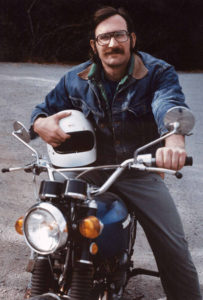
When asked what his favorite parts of being a chemistry professor have been, Strauss highlighted his time teaching
“One year I got a handwritten note from Mike Histand, who was the Director of the University Honors Program at the time, ‘Dear Steve, At the freshman valedictorian recognition last night, one of the students was highly complimentary about your [Honors General Chemistry]. She said it was her best class. Since she is also the daughter of the Secretary of the State Board, so much the better. Thanks, Mike.’”
Strauss enjoyed teaching general chemistry to 254 students, teaching honors general chemistry in the 1990s, and teaching inorganic chemistry laboratory.
“It was gratifying to hear at the end of the semester comments such as, ‘I learned a lot in your class,’ ‘I really liked your class,’ and even ‘I liked your class but I still hate chemistry.’”
Outside of teaching, Strauss also cherished his ten years serving as the chemistry department representative on the CNS Curriculum Committee and as the CNS representative on the University Curriculum Committee.
“Even though it took a lot of time, it was worthwhile and rewarding because curriculum development and curriculum standards were important to me and because every member of the committee took the work seriously.”
Nancy Levinger, professor in the Department of Chemistry, said, “We have Steve to thank for developing and honing the undergraduate inorganic chemistry curriculum. Together with former chemistry faculty member, Oren Anderson, Steve created a lower level descriptive inorganic chemistry course that challenged students to analyze data and discover trends ‘on their own’ through subtle guided instruction. Steve also completely revised the advanced inorganic chemistry laboratory course, which he has taught for 15 years.”
From 1997 to 2000 Strauss was program chair of the ACS Division of Fluorine Chemistry, and in 2001 he was chair of the DFC and chair of the Gordon Research Conference on inorganic chemistry. He co-organized, with Joe Thrasher, Olga Boltalina, Dennis Curran, and Rick Fernandez, the “19th International Symposium on Fluorine Chemistry and Fluorous Technologies,” held in Grand Teton National Park in August 2009. In 2019, Strauss was selected as a Fellow of the American Chemical Society.
Strauss will leave behind a legacy of teaching, mentorship, research, and service. He has seen the Department of Chemistry grow over almost 40 years, with new students, faculty and staff.
Strauss said, “I will miss watching the growth and success of so many talented junior colleagues over the years, as our department continually got better and better. Someone once said, ‘The way to improve your department is to hire people who are better than you are.’ And we have done that, again and again.”
“While I am sad to see him go, I am happy for Steve and wish him the best for a happy, healthy, and robust retirement,” said Rick Finke, professor in the Department of Chemistry.
“I will miss the thoughtful enthusiasm that Steve has brought to the department as well as his infinite knowledge about all things CSU,” said Levinger.
